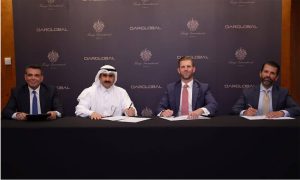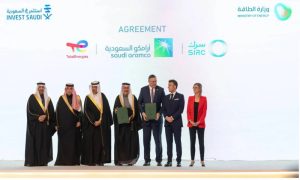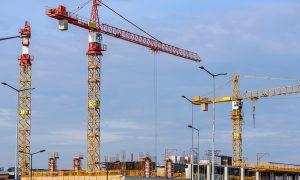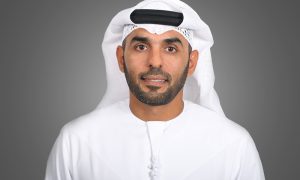Contract Management
Speakers from the forthcoming Middle East Contract Management conference, to be held June 20-21 in Qatar, share their knowledge on contract and risk management.

Speakers from the forthcoming Middle East Contract Management conference, to be held June 20-21 in Qatar, share their knowledge on contract and risk management.
Damian Wilkinson
Damian Wilson, director for Hill International in Qatar, will speak about minimising risk, fault, loss and damages in construction contracts
The key to managing most of the issues facing construction projects is to pre-empt risks before they become problems”
What specific topics will your presentation on risk management in construction contracts cover?
The presentation will set out how effective risk management can inform contract management in order to aid the successful delivery of projects.The presentation will specifically explore: the understanding of risk; the sources of risk; the negative impact that unmanaged risk can have on construction projects; the importance of effective risk management and the key principles of effective risk management.
What are the main issues regarding construction contracts and how do these issues differ between Qatar and other GCC countries?
Construction projects are, generally, medium and long term ventures that involve many different organisations and individuals, sometimes with opposing objectives, working together in what can be difficult economic and schedule conditions.
Construction projects, wherever they are located, are invariably unique and it is difficult to model to a high degree of accuracy. Therefore it can be difficult to predict the final outturn cost and completion date.
Different regions, present different problems, the unrest in parts of the Middle East creates high levels of risk and uncertainty that can result in projects being suspended, terminated and cancelled. Similarly the economic situation in the UAE led to a general lack of confidence, increased levels of insolvency, termination and cancelation of projects.
All economies go through cycles of change, which are influenced by different factors, civil, social, economic and others. Reduced demand will lead to deflationary pressures and increased demand to inflationary pressures. The reduction in construction activity in UAE had the effect of driving down construction costs, when regions experience high levels of demand and construction activity, as is planned in Qatar, one of the challenges will be control of the inflationary pressures and managing construction costs.
One of the advantages that Qatar has is its strong economic base which is driving much of the construction activity and this should lead to stability and a more sustainable and manageable growth pattern.
What needs to be done to address the situation?
The key to managing most of the issues facing construction projects is to pre-empt risks before they become problems. Understanding the nature of risk and the type of risks that challenge the successful completion of the project objectives will lead to informed and improved decision making. This should lead to the selection of appropriate conditions of contract and the necessary amendment of contracts, the selection of project partners and development of more realistic forecasts and plans based on the project objectives and the risks facing those objectives.
How much protection does the law provide?
The relationship between the parties to construction contracts is governed by the conditions of contract and whilst the conditions of contract will operate within a legal framework that may afford some protection in given circumstances the key will be to ensure that the necessary provisions and protection is included in your chosen contract, either by the selection of appropriate standard conditions of contract, or by incorporation of amendment to those standard conditions or the development of bespoke conditions of contract. Reliance on national laws may be an option if risks materialize into problems, whereas the effective management of risk can prevent risks becoming problems and therefore reduce the need for reliance on national laws.
Why should people attend this conference? Funders, clients, contractors, subcontractors, suppliers and all those involved in construction projects that want to increase the chances of successfully delivering their projects.
Key topics
- Uncertainty in the Middle East and North Africa: contract management
- Issues that need to be considered
- Execution of contracts: getting it right
- Developing a sound contracting strategy to ensure successful negotiation of contracts
- Effective and efficient dispute resolution: avoiding, managing and resolving disputes to successfully manage relationships
- Communicating contracts: reaching predictable results and preventing surprises
- Optimal contractual bidding and evaluation of proposals to achieve the best results for your business
Nabil Abbas
Nabil Abbas, General manager for Abbas Architects and Construction Consultants, Saudi Arabia, delivers his presentation on effective and efficient dispute resolution
What topics will your presentation on Risk Management cover?
My presentation will cover the risk exposure of both the employer and the contractor under the contract. Risk types will be discussed as well as how to deal with risks from the start, by identifying those risks and dealing with them by either accepting, sharing or transferring them, to other or third parties.
What are the main issues when managing risk and how do these issues differ between Qatar and other GCC countries?
Identification of risks is the starting point. this is the rols of experts and a major base on which to stand”
Identification of risks is the starting point. This is the role of experts and a major base on which to stand. Then come some strategic decisions on how to deal with such risks: either to accept them because this is either essential or more appropriately, to transfer them to a third party as when buying an insurance policy or to share them with the other party of the contract.
These issues could differ between Qatar and the rest of the GCC countries depending on the laws governing the insurance industry and the law of contracts.
What needs to be done to address the situation?
I think unifying the laws in all six GCC countries will help contractors deal more confidently in the pan Gulf area.
How much protection does the law currently provide?
Things are different in various Gulf countries: Saudi Arabia for example, follows Sharia law while other Gulf states follow other Latin or Anglo Saxon codes. This makes it difficult to deal in these different jurisdictions.
What topics will your workshop cover and why should people attend?
My workshop will provide a general overview of construction contracts; explore the rights, roles and obligations of the parties; and assess risk allocation and management and dispute resolution, including amicable settlement.
People would like to attend to get a deeper knowledge of construction contracts as well as the issue of claims management which is a hot topic nowadays in the GCC area. They will be encouraged to discuss their own current problems and share their ideas on the different topics addressed during the course.
“Identification of risks is the starting point. this is the rols of experts and a major base on which to stand”
The MECM panel in full
Damian Wilkinson: director, Hill international, Qatar: “Contract risk Management: Minimising risk, Fault, Loss And Damages in Construction Contracts”
Saleh A. Hassoubah: contracts, purchasing and warehouse manager, Saudi Aramco Mobil refinery Co. Ltd., KSA: “Optimal Contractual Bidding And Evaluation Of proposals To Achieve The Best results For Your Business”
Dr. Lee Celand: legal director, Omniyat investments & Management, UAE: “Execution Of Contracts: Getting it right”
Dr. Ahmed Fathi Waly: assistant professor, Helwan University, and contract administration consultant, wALY – Arbitration & Contract Administration Firm, Egypt: “Managing Change: Ensuring That Change is Managed Effectively To Successfully implement A Contract”
Farouq A. Al Hefnawi: group director – Legal, iTS, Kuwait: Breakout session “iT, Oil And Gas, Construction”
Frank Leech: project director, Taisei Corporation, UAE: Moderator of breakout session “iT, Oil And Gas, Construction”
Alaa Samman: director general of business development and property management, General Authority of Civil Aviation: “Medinah Airport ppp project”
Helena Haapio: contract coach, Lexpert Ltd., Finland: “Communicating Contracts: reaching predictable results And preventing Surprises”
Satender Sharma: director, commercial petrofac international Limited, UAE: “Developing A Sound Contracting Strategy To Ensure Successful Negotiation Of Contracts”
Nabil Abbaa: general manager Abbas Architects and Construction Consultants, KSA: panel discussion “public-private partnerships in The Middle East: Examining An important infrastructure investment Tool”
David Mcelveney: partner, Middle East projects and Construction Group, Clyde & Co LLp, UAE: “Uncertainty in The Middle East And North Africa: Contract Management issues That Need To Be Considered”




















